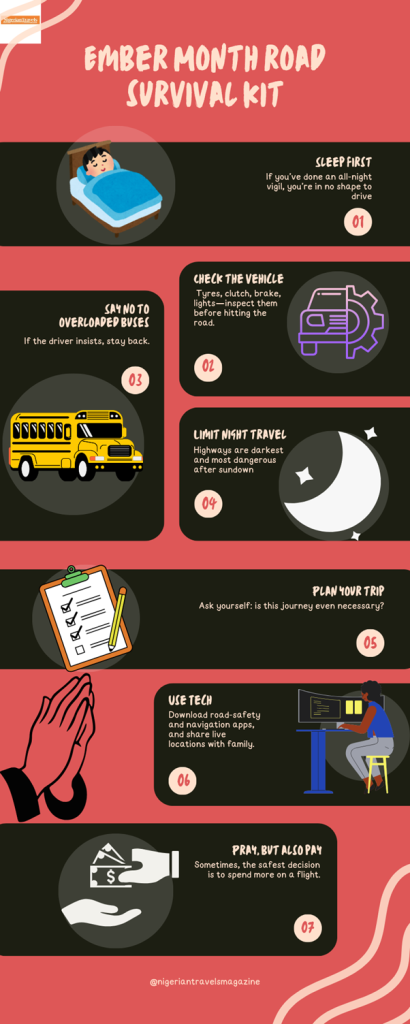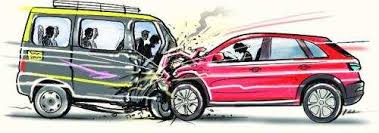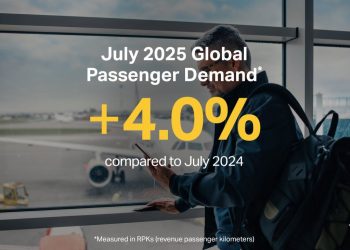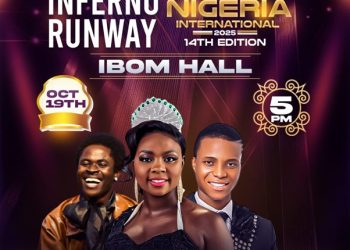Two hours before dawn, Chidindu Ezenwoke was standing in front of his Toyota Sienna, like a warrior who hasn’t gone to war yet. He had just pasted a fresh Zion Ministry sticker on the windscreen, and now he was sprinkling the bonnet with holy water.
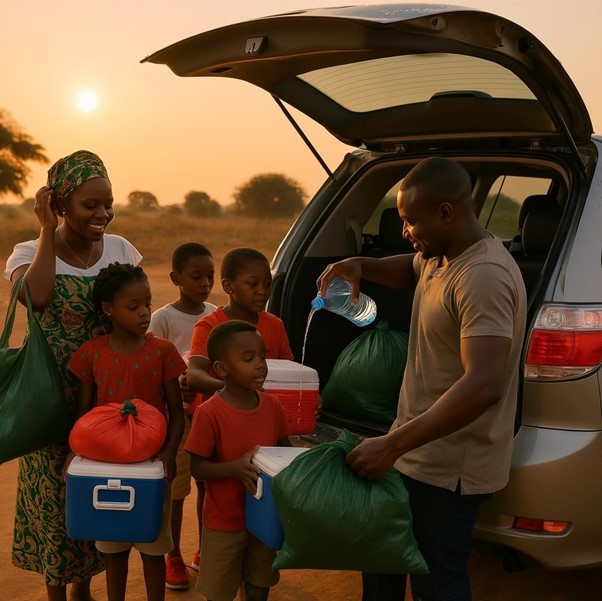
Ezenwoke’s wife clutched a Bible to her chest as she prayed, “I will not die this ember month!” Her husband had begun to lubricate the tyres with anointing oil.
“I cancel every blood-sucking demon on the highway,” his wife declared, while their four children, stationed at the four corners of the car, mumbled a hungry and a yawning “Amen.”
For ten years, the Ezenwokes had flown from Lagos to Anambra every December. But not this year. With airfares climbing into millions of naira, Chidindu refused to “waste” ₦3million on flights.
“I have the money, but I cannot spend it just to go home for Christmas,” he told me. “We would rather use my car. That five million is what I will use to buy foodstuffs and even pay school fees next year. Mbanu!”
And so, like millions of Nigerians, the family took the highway instead—armed with prayer, stickers, and a firm belief that God’s protection is cheaper than a plane ticket.
Blood-Sucking Demons or Bad Driving?
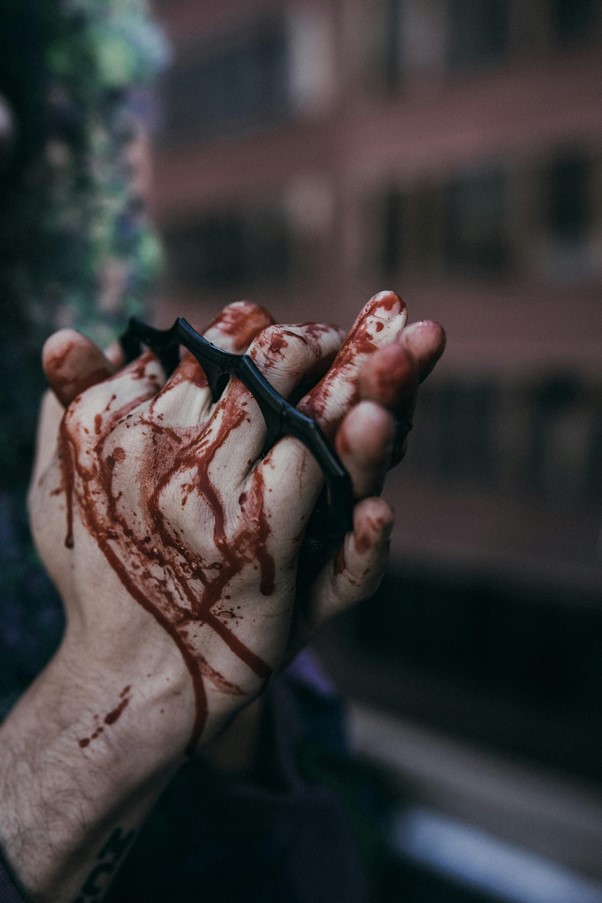
The ember months—September to December—carry a peculiar reputation in Nigeria. While the Philippines calls them the start of the world’s longest Christmas season, Nigerians brace for something else entirely: accidents, insecurity, and death.
The FRSC reports that over 30% of Nigeria’s yearly traffic accidents occur during the Ember months, with December and January typically being the deadliest periods. Although the number of crashes decreased by about 10% in 2024, the number of deaths increased by 7% to more than 5,400, indicating that the risks are still present.
Our response? Long vigils before a trip, “soaking” vehicles in the blood of Jesus, and blaming invisible demons for carnage on the roads or for those who flee from risk—stay home.
Yet, as one respondent bluntly told me:
“Everything is not juju. Na our stinginess and greed. Transport companies know their buses are bad, but they still bring them out. And we passengers will still enter, hoping prayer will cover the clutch and brake.” Human and systemic factors account for a large portion of the risk; traffic police frequently point to overloading, speeding, night-time weariness, and careless overtaking.
The Vigil and the Sleep
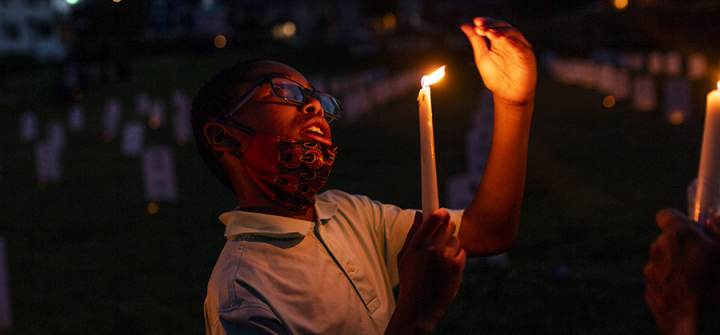
Another dangerous ritual is the all-night vigil before travel. A driver confessed to me on a Lagos–Enugu trip:
“Normal thing. I neva sleep for two days. We dey used to am.”
That same morning, he was downing sachet gin to “fight sleep”.
Steven, a passenger, told me, “Normally I sleep on transit, but that day I stayed awake like I was the co-driver—ready to jump out the window if anything goes wrong.”
No demon required here. Science already confirms that a sleep-deprived driver is as dangerous as a drunk one.
Sleep expert and Chief Medical Director of Lagos Executive Cardiovascular Centre, Dr Folasade Alli, explains that lack of sleep can have profound effects on both physical and mental health.
The expert stated that many Nigerians underestimate the significance of sleep and overlook the detrimental effects of chronic sleep deprivation on overall health and well-being.
The National Institute of Neurological Disorders and Stroke posited that getting enough quality sleep at the right times are as essential to survival as food and water. Without sleep you can’t form or maintain the pathways in your brain that let you learn and create new memories, and it’s harder to concentrate and respond quickly. How can someone who rarely sleeps be sound physically and mentally to take you to your destination?
“Make We Pad Am Till We Reach Abia”
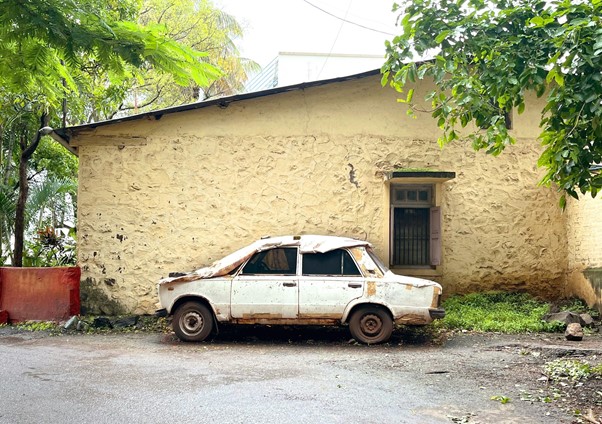
Poorly maintained vehicles are another silent killer. One mother of two recalled her trip:
“The driver kept saying, ‘Make una no vex, na just the clutch; we go manage to reach in Jesus’ name.’ Meanwhile, the bus was packed full. If not for some strong men who helped pad it, I and my kids for hear wieee. But the company knew that the bus was bad. Sometimes it’s just wickedness.”
Vehicles with poor maintenance compromise vital components like the brakes, tyres, steering, and lights, which can result in mechanical failures including tyre blowouts, brake failure, loss of control, or vision problems. The likelihood of collisions, jackknifing, rollovers, and other traffic accidents can be directly increased by these failures, which might cause abrupt stops or the inability to stop, loss of stability, or confusion for other drivers.
A retrospective review of all road-traffic injuries admitted to UNTH Enugu in 2015 was done by the National Institutes of Health. It was found that nearly half occurred on intercity highways, precisely where families like the Ezenwokes make their treks. Injuries were often severe, like soft-tissue injuries, fractures and head trauma and 10.7% resulted in death.
Shockingly, the average delay from injury to hospital arrival was nearly 24 hours, meaning that mechanical failure (brakes, clutches, tyres) did not just risk a crash; it risked turning one into a killing field. It’s greed and broken systems that breaks the lives of Nigerians into a deathmare—transferring living souls into the night—a holiday nightmare.
Road Rage, Pride, and Competition
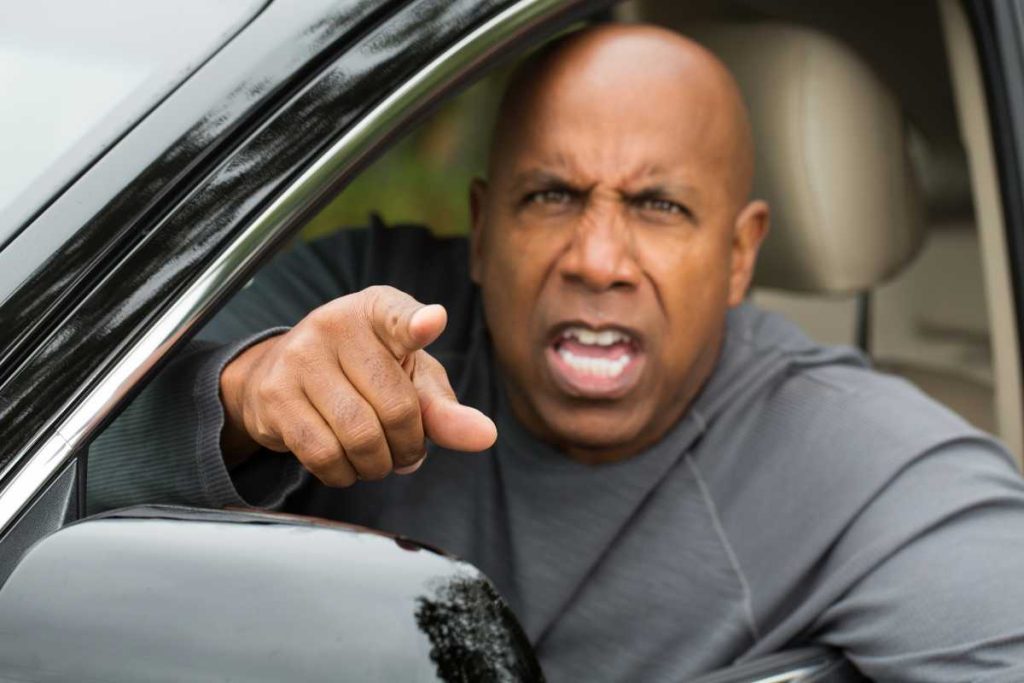
Even when vehicles are sound, Nigerian roads host another plague: pride. Drivers, especially those behind ‘big cars’, see every slower vehicle as a challenge. According to the Nigeria Highway Code and road safety analysts, human factors account for about 90% of crashes, of which 80% are due to driver behaviour such as overconfidence, speeding, and impatient overtaking. The undiagnosed disease for this is called “I’m a master of this road”.
The FRSC routinely links indiscriminate overtaking—cutting across solid lines, passing on bends or hills to fatal crashes. In fact, a 2025 RoadKing analysis shows reckless overtaking causes more than 12% of Nigeria’s road deaths, driven not by necessity but by nervous bravado. Nobody’s immune when driving becomes a battle of egos, including pregnant mothers and schoolkids.
Faith, But Balance
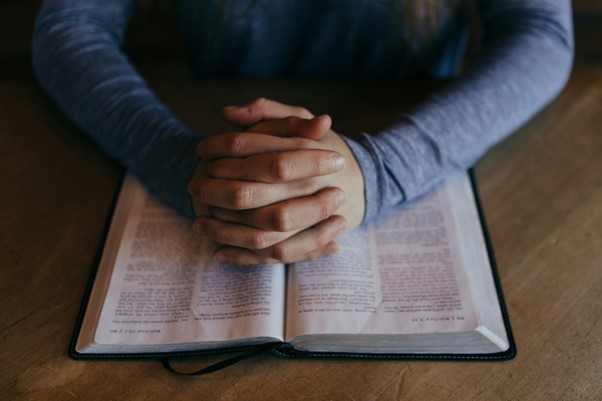
Nigerians are religious people, but should faith replace sense and duty? Opinions are divided. Some would insist that even abroad, accidents happen despite their rules. From their standpoint, we should not neglect the supremacy of God, and the devil is more active where his presence is denied. The watchword is ‘watch and pray’. Another, more pragmatic, puts it this way: “While you take precautions physically, don’t ignore the spiritual. But please check your brakes before you bind demons.”
The Real Guide
